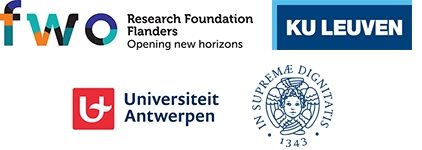Research project Balancing sustainability and costs: Innovative agribusiness models to account for environmental and social impacts

General introduction
What is the real cost of a product from the agrifood sector in Flanders? The REFORM research project tries to answer this question in the most quantified way possible. Production costs in the agrifood sector extend beyond private costs like materials and labour, often generating hidden environmental and social costs, such as pollution, soil erosion, greenhouse gas emissions and poor working conditions. True Cost Accounting (TCA) identifies and quantifies these hidden costs, providing a complete view of the ‘true costs’ of production. Understanding hidden costs allows businesses to develop strategies such as adopting sustainable practices or redesigning business models to reduce these externalities. The REFORM project applies TCA to develop agribusiness models that balance hidden costs with added value, promoting sustainability, social equity, and economic viability while addressing environmental conservation and resilience challenges.
Research approach
The researchers first focus on existing agribusiness models: they identify and analyze these models and evaluate their environmental, social and economic sustainability. They then formulate practical guidelines for improvements. REFORM works with concerned industry stakeholders to design and test sustainable agribusiness models using True Cost Accounting (TCA) methods. There will be a system of discrete choice experiments to ensure that the new models are both realistic and implementable, encouraging practical solutions for sustainable agri-food systems.
Relevance/Valorization
The expected understanding of the hidden costs of a production process enables companies to develop improved strategies. This could be introducing sustainable practices or redesigning business models to reduce externalities. According to the researchers, the results of this project help to further strengthen policy advice and sustainable business practices of the agri-food sector in Flanders. The development of innovative agribusiness models may also gain value for farmers, policy makers and the broader value chain by ensuring that the models can be scaled up and adopted. This would have a major impact on economic, social and environmental sustainability.

